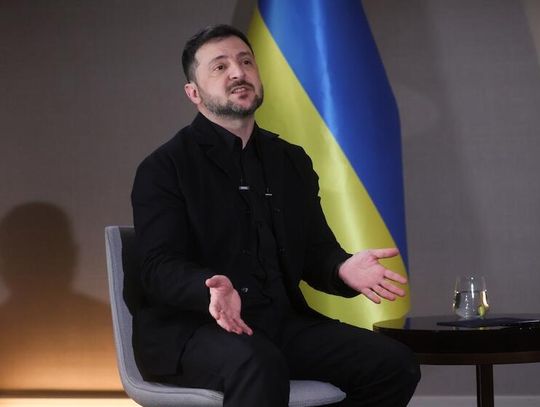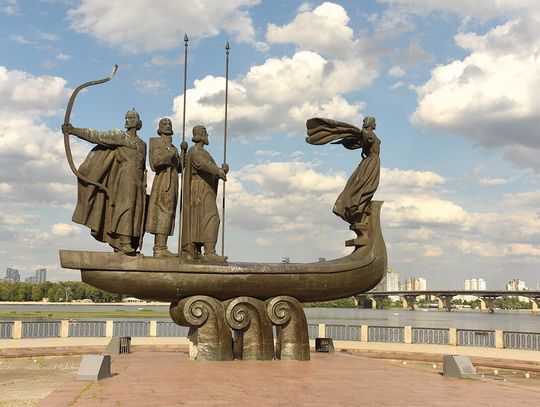Ostatnio wiele mówi się w mediach o reparacjach. Izrael twierdzi, że należą mu się od Polski pieniądze w ramach restytucji mienia utraconego przez Żydów podczas drugiej wojny światowej. Prezydent Trump podpisał ustawę JUST (Justice for Uncompensated Survivors Today), która ma nakłonić kraje takie jak Polska do wypłacenia odszkodowań ludziom, których majątki podczas wojny przejęli Niemcy.
Dużo też mówi się w Stanach Zjednoczonych o wypłacie odszkodowań dla Afroamerykanów, za krzywdy jakie ich przodkowie ponieśli w czasach niewolnictwa.
Obie te dyskusje sugerują, że zadośćuczynienie finansowe może w jakiś sposób wynagrodzić ludzkie cierpienie, upokorzenie i żałobę. Czy rzeczywiście? Czy pieniądze mogą wynagrodzić komukolwiek lata cierpienia?
Dla mnie sprawa jest oczywista, ale pozwólcie, że o tym napiszę.
Nie istnieje taka reparacja ani restytucja, która może zadośćuczynić wyrządzone krzywdy.
Mój ojciec spędził cztery lata w niemieckim obozie koncentracyjnym w Buchenwaldzie. Moja mama przez trzy lata była robotnicą przymusową po tym, jak na jej oczach Niemcy zgwałcili i zamordowali jej matkę i siostrę.
Na początku lat 90. moi rodzice dowiedzieli się, że Niemcy oferują kompensację finansową dla osób, które w czasie wojny wywieziono do niemieckich obozów pracy. Przez zaprzyjaźnionego prawnika z Chicago wypełnili stosowne dokumenty.
Moja mama otrzymała reparacje. Jednorazowo dostała od Niemców czek na około 1,5 tysiąca dolarów oraz miesięczne odszkodowanie wynoszące wówczas 32 dolary. W 2006 roku, przed jej śmiercią suma ta wzrosła do 87 dolarów na miesiąc.
Niemcom nie udało się odnaleźć dokumentów świadczących o pobycie mojego ojca w niemieckim obozie, więc odpowiedzieli, że nie ma dowodów, że spędził pięć lat w Buchenwaldzie. Nie ma dowodów, że niewolniczo pracował po 16 godzin na dobę, że w chwili wyzwolenia obozu ważył 70 funtów, nie ma dowodów, że niemiecki strażnik wybił mu kijem oko, ani że widział, jak jego przyjaciele są kastrowani, wieszani i bici na śmierć.
Ponieważ nie było dowodów, ojciec żadnych reparacji nie dostał. Ani centa. Przez kilka lat próbował za pośrednictwem polskich i amerykańskich instytucji dochodzić swoich praw, ale ostatecznie się poddał. Zdecydował, że suma pieniędzy, które wydał, aby otrzymać reparacje przewyższyła to, co mógłby otrzymać, więc przestał starać się o odszkodowanie.
Moja mama powtarzała, że Niemcy, którzy zgwałcili i zabili jej bliskich, a ją wysłali na trzy lata do obozu pracy, dają jej za to 30 dolarów miesięcznie. Że to za mało. Że każda suma to byłoby za mało.
Dwadzieścia lat po staraniach mojego ojca o reparacje od Niemców i dziesięć lat po jego śmierci Amerykańskie Muzeum Pamięci Ofiar Holokaustu przysłało mi fotografie 15 dokumentów. Wiele z nich potwierdzało, że mój ojciec był więźniem obozu w Buchenwaldzie, w związku z czym odszkodowanie mu się należało. Nie wiem, skąd muzeum miało te dokumenty, ale stanowiły one niezbity dowód, że mój ojciec był niemieckim robotnikiem przymusowym.
Zastanawiam się, dlaczego niemiecki rząd nie był w stanie znaleźć tych dowodów.
Reparations?
Recently, there’s been a lot of talk in the news about reparations. I heard that Israel has been arguing that it should receive reparations or restitutions from Poland for Jewish deaths and loss of property during WWII. And President Trump recently signed something called the Justice for Uncompensated Survivors Today act. The act is meant to encourage countries like Poland to make restitution to those people who had their property taken by the Germans during World War II. There’s also recently been an increase of talk here in the United States about whether or not African Americans should receive reparations for what happened to their ancestors during the decades of slavery.
All of these discussions suggest that financial reparations can somehow actually compensation for the grief and misery that people suffer.
Can they? Can money somehow compensate for years of suffering?
The answer seems obvious to me, but let me tell you anyway.
There are no repayments, no restitution for what happened.
My dad was a Polish slave laborer who spent more than 4 years in Germany’s Buchenwald Concentration Camp. My mom spent 3 years as a slave laborer in Nazi Germany after seeing the women in her family raped and killed by German soldiers.
In the early 1990s, my mom and dad heard that Germany was offering money to those who had suffered in Germany during the war as slave laborers, so they applied through a Chicago lawyer friend of theirs for these reparations.
My mother managed to receive reparations. She got a lump sum from the German government of about 1500 bucks and a monthly allowance starting in 1990 or so of $32 per month. When she died in 2006, the monthly check had increased to about $87.
The Germans were never able to find my father's paper work from his time as a slave laborer, so they said he had no proof that he was in Buchenwald for almost 5 years, no proof that he worked 16 hours a day, no proof that he weighed 70 pounds when he was liberated, no proof that he was blinded in one eye by a German guard with a club, no evidence that he saw his friends castrated, hanged, beaten to death.
Because he had no proof, he got no reparations, not a penny. He spent a couple years working through various Polish and Polish-American legal aid groups trying to get reparations. He finally gave up. He decided that the money he was spending to get the reparations wouldn't get him anything, and he stopped pursuing reparations.
My mother used to say that the Germans raped and killed her mother and her sister, and put my mother in a slave labor camp for 3 years and then gave her 30 dollars a month as a reparation. It wasn't enough. Nothing was enough.
PS: 20 some years after my dad last applied for reparations from the Germans and 10 years after his death, the US Holocaust Memorial Museum sent me photographs of 15 documents. A number of them prove that my dad was in fact in Buchenwald Concentration Camp, and that he was eligible for reparations. I don’t know where the USHM Museum got those documents, but there they were and there it was: Proof that my dad had been a slave laborer.
I wonder why the German government couldn’t find this proof.
John Guzlowski
amerykański pisarz i poeta polskiego pochodzenia. Publikował w wielu pismach literackich, zarówno w USA, jak i za granicą, m.in. w „Writer’s Almanac”, „Akcent”, „Ontario Review” i „North American Review”. Jego wiersze i eseje opisujące przeżycia jego rodziców – robotników przymusowych w nazistowskich Niemczech oraz uchodźców wojennych, którzy emigrowali do Chicago – ukazały się we wspomnieniowym tomie pt. „Echoes of Tattered Tongues”. W 2017 roku książka ta zdobyła nagrodę poetycką im. Benjamina Franklina oraz nagrodę literacką Erica Hoffera, za najbardziej prowokującą do myślenia książkę roku. Jest również autorem dwóch powieści kryminalnych o detektywie Hanku Purcellu oraz powieści wojennej pt. „Road of Bones”. John Guzlowski jest emerytowanym profesorem Eastern Illinois University.
—
John Guzlowski's writing has been featured in Garrison Keillor’s Writer’s Almanac, Akcent, Ontario Review, North American Review, and other journals here and abroad. His poems and personal essays about his Polish parents’ experiences as slave laborers in Nazi Germany and refugees in Chicago appear in his memoir Echoes of Tattered Tongues. Echoes received the 2017 Benjamin Franklin Poetry Award and the Eric Hoffer Foundation's Montaigne Award for most thought-provoking book of the year. He is also the author of two Hank Purcell mysteries and the war novel Road of Bones. Guzlowski is a Professor Emeritus at Eastern Illinois University.
fot.Pixabay.com










